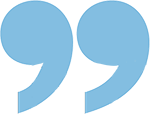Becoming a Swiss army knife

Questen Inghram recently began reporting for the Yakima Herald-Republic on a Murrow News Fellowship, but it’s been a long road to getting there.
Story by Basil Humke
Photo by Maylis Laverne
His whole life, Questen Inghram had always dreamed of going to college. Then he did that, so he had to get a new dream. He thought working at a bookstore sounded pretty good.
Inghram’s second “dream” didn’t take long to become a reality. Shortly before graduating from Western Washington University with a degree in news/editorial journalism, he got a job working at Village Books. However, it didn’t take long for him to realize that hauling hardcovers and pushing paperbacks didn’t really feel like the fulfillment of a dream. Not his dream, anyway.
These days, Inghram still doesn’t know what, exactly, his dream is, but he’s more certain than ever that it has to do with journalism. In April 2024, he started a two-year Murrow News Fellowship covering local government in the Lower Yakima Valley for the Yakima Herald-Republic.
The Murrow News Fellowship is a new state-funded initiative sponsored by Washington State University’s Edward R. Murrow College of Communication with the goal of improving coverage of civic affairs in underserved Washington communities. Inghram is part of the inaugural six-person cohort of fellows.
“There were a few things that really intrigued me about it,” he said. “One, [the Murrow Fellowship is] a new program. Two, the Yakima Herald-Republic is one of the last great newspapers of the West.”
Life in Yakima has been good so far for Inghram, who described his new co-workers at the Herald-Republic as “so welcoming.” But while he’s certainly happy with where he’s at now, it’s been a long road to getting there.
“I want current students to really be thinking about the next couple years, and realize: You will not get that dream job of yours right off the bat,” Inghram said.
He encouraged students to shift their mental framing of the years after college. Failing to get your “dream job” immediately following graduation — or worse, not even having one in mind — can be an intensely uncomfortable experience, but with the right mindset, it can also be a unique opportunity for pursuing growth in places not previously considered.
The key, Inghram said, lies in letting go of your expectations.
“I go into things without expectations, and I’m always pleasantly surprised,” he said.
It’s a mentality that Inghram has successfully applied to a wide variety of jobs and experiences since graduating from Western in 2019. He’s worked as a publishing assistant, freelance reporter, editorial assistant, and Conservation Corps supervisor in addition to completing a six-week publishing course at Columbia last summer. It’s been a long, strange journey, but navigating it has helped Inghram become — as he’s grown fond of telling hiring managers — something of a “Swiss army knife.”
Assembling a diverse skillset is especially important for journalists working today in the U.S., Inghram noted.
“You need to be a storyteller in a digital age in a country that is more and more multilingual by the day,” he said.
Recently, Inghram’s own pursuit of that goal has meant focusing his energy in several directions at once. He’s been working on his Spanish to better engage with Yakima’s large Latino community through his coverage, learning web design so that he can take a more active hand in story formatting, and doing copy work of “One Hundred Years of Solitude” to hopefully infuse his own writing with some of that Gabriel García Márquez magic. (I was a few minutes late to our interview; this last is what Inghram was killing time with when I arrived.)
Inghram also noted his gratitude for how Western’s journalism program prepared him for working in the field, joking that he still views everyone who made it through Carolyn Nielsen’s reporting class alongside him as “old war buddies.”
“Carolyn Nielsen’s reporting class, I would say, was as difficult or even more difficult than a lot of the actual work experiences I’ve had,” Inghram said. “I cannot speak more highly about that.”
In addition, he said, working as an editor for The Front “really helped me see, like, yes, I want to work in a publication. Like, there is something here. This kinship, this energy that is like no other job… It’s amazing, it’s creative, it’s informative, it’s fast-paced.”
Overall, Inghram described his time at Western as being characterized by a culture of intense dedication to student journalism.
“We would get to the newsroom at dinnertime, and we would leave at six in the morning,” he recalled. “It was something else.”
Aside from The Front, Inghram was also involved with Klipsun and The Planet during his time at Western. He also managed to find time for a variety of other interests and pursuits unaffiliated with the journalism program, including the philosophy, Spanish, and swing dancing clubs as well as KUGS FM radio.
“I had so many great communities there,” Inghram said.
He urged current students to keep in mind that college is about more than just hitting the books, and to seek out connection-building opportunities wherever they can.
“You’re gonna be learning for the rest of your life. That will not end when you leave Western,” Inghram said. “What will end is the built-in community. Once you leave, you kind of have to find and build that on your own.”
You have to build your life on your own, too. It’s a different road for everyone, but that’s OK. In fact, it’s more than OK. It’s beautiful.
